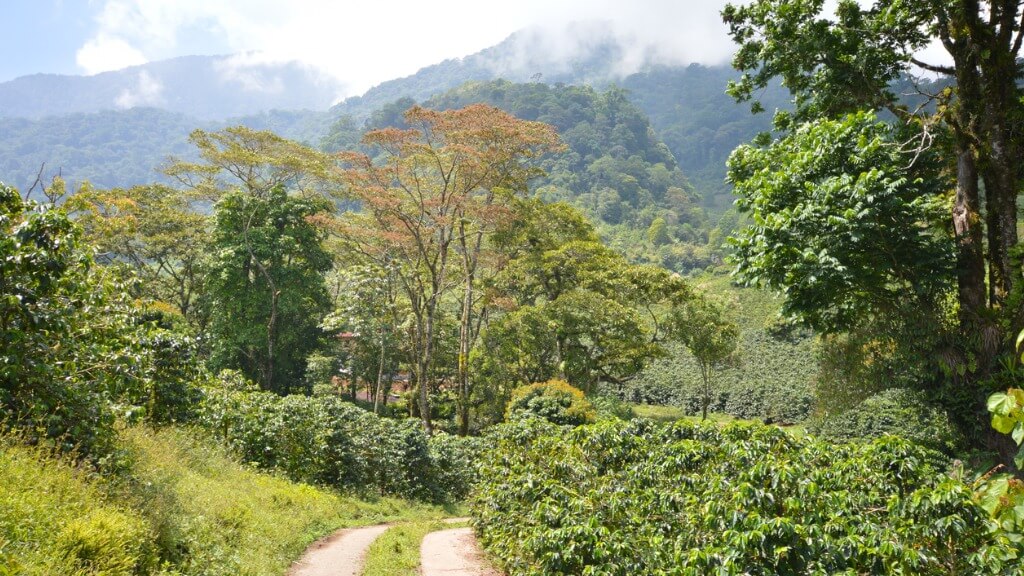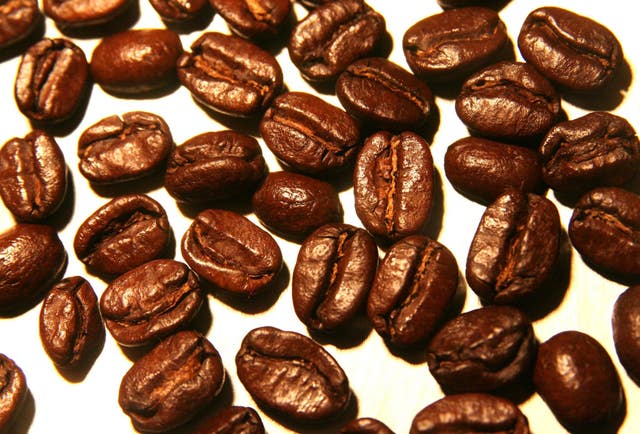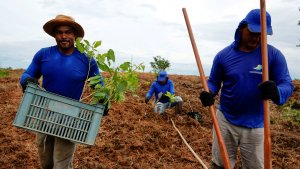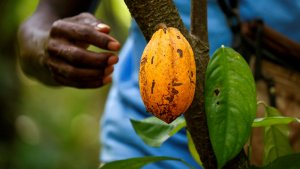How Is Climate Change Affecting Coffee Production?
Some farmers are abandoning coffee in favour of other crops less sensitive to the weather.

Coffee – the most traded commodity worldwide after oil – is under threat in Peru.
But this is not a phenomenon confined solely to Latin America.
What is Arabica?
Arabica is a species of the Coffea plant which grows well at higher altitudes.
It produces the main bean that goes into the quality coffee market – e.g. the cappuccinos we buy in coffee shops.
Robusta has a higher caffeine content and more bitter taste. It tends to be used in less high quality coffee, such as instant coffee.

How does Arabica coffee get harvested and processed?
The ripe red cherries are either hand-picked, known as selective harvesting, or the plants are strip- harvested, where all cherries are taken off the branches either manually or mechanically.
Once picked, the cherries are pulped, revealing the beans within. This is known as the wet method.
The beans are fermented, laid out to dry in the sun and raked to ensure even drying.
Any remaining skin and husks are removed during milling, before the beans are roasted, cooled and ground.
In the dry method, the cherries are laid out to dry with the pulp still intact, and the dried outer layers are later removed by a machine.
How popular is coffee in the UK?
Despite being better known as a nation of tea-drinkers, the UK has seen a surge in demand for speciality coffee in recent years.
It has become one of the largest consumer markets for coffee in Europe.
Recent research from the Allegra World Coffee Portal reveals that the total UK coffee shop market is valued at £10.1 billion across 25,483 outlets following two decades of growth.
The EU’s Centre for the Promotion of Imports from developing countries says the UK is undergoing a “major shift” from tea to coffee.
Ground coffee and single-serve coffee pods are becoming increasingly popular, particularly among millennials, according to the British Coffee Association.

Where does coffee come from?
Vietnam is the largest developing country supplier of coffee beans to the UK, responsible for more than a fifth of the market, according to the EU’s Centre for the Promotion of Imports.
Brazil and Indonesia closely follow, while Peru is the sixth largest exporter to the UK, accounting for 4.2% of the market.
How is climate change affecting coffee growth?
Peru is the fifth most-affected country in the world by climate change.
The delicate Arabica bean is being threatened by unpredictable weather patterns, rising humidity and diseases.
Brown eye spot fungus thrives in conditions of high humidity and rain and causes small brown spots to form on the surface of leaves.
When berries are infected, they ripen before the beans are mature, and this can result in problems with flavour when the coffee is processed.
The coffee rust disease leaves orange dust on the underside of leaves, causing them to fall off and preventing the plants from photosynthesising.
In Peru, farmers are switching to lower quality, more resilient varieties or abandoning it altogether for more reliable, profitable crops like sugar cane, cocoa and rice.
But even some of these crops are suffering as a result of unpredictable weather.
Globally, coffee rust is present in all coffee-producing regions.
By 2050, up to half the land currently used globally to grow coffee could have become unusable for this purpose due to climate change, experts predict.
A report by Fairtrade in France predicts that certain varieties of coffee could become extinct by 2080, making coffee crops more homogeneous – and therefore less rich and resilient.

What could the impact be?
With coffee consumption rising each year, the future struggles of providers to meet this demand and diminished yields could lead to rising prices.
With more high-quality variants of bean failing to adapt to the uncertain climate, it could also mean less quality coffee as farmers swap to more resilient alternatives.
The possible impact in the UK could be that coffee becomes a long-term luxury and quality will be sacrificed.
What is Fairtrade doing to help?
Fairtrade will celebrate its 25th anniversary in the UK in October, after being launched as a result of the coffee crisis in the 1990s.
With historically-low market prices, the Fairtrade minimum price means farmers selling under those terms are protected and able to continue farming by receiving a stable, higher price.
Those struggling to grow coffee due to increasing climate difficulties are being supported to stay in the farming industry by diversifying into different crops.
The Fairtrade investment is also being used to help farmers innovate and adapt.
For example, farmers who can invest in concrete drying platforms are able to produce better quality coffee than those who dry the beans on the ground.
And machines speed up production, when previously workers would have had to complete the process by hand.
Jemma Crew is PA Health and Science Correspondent in Peru.
Thanks for signing up to Minutehack alerts.
Brilliant editorials heading your way soon.
Okay, Thanks!

